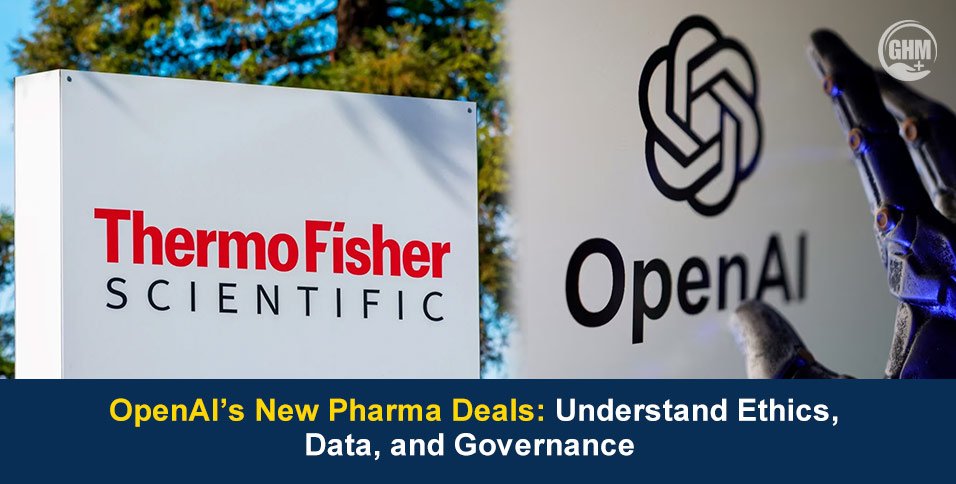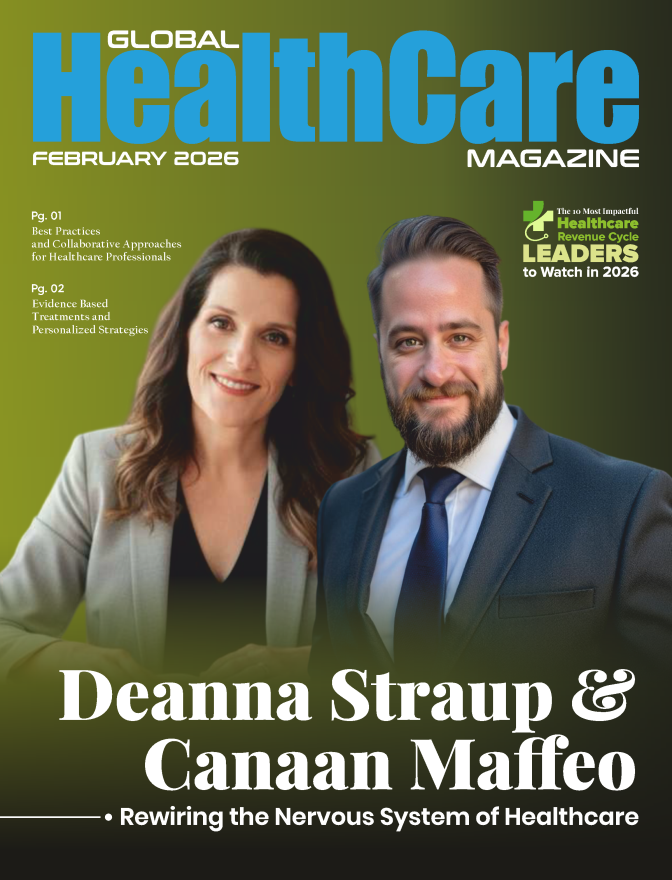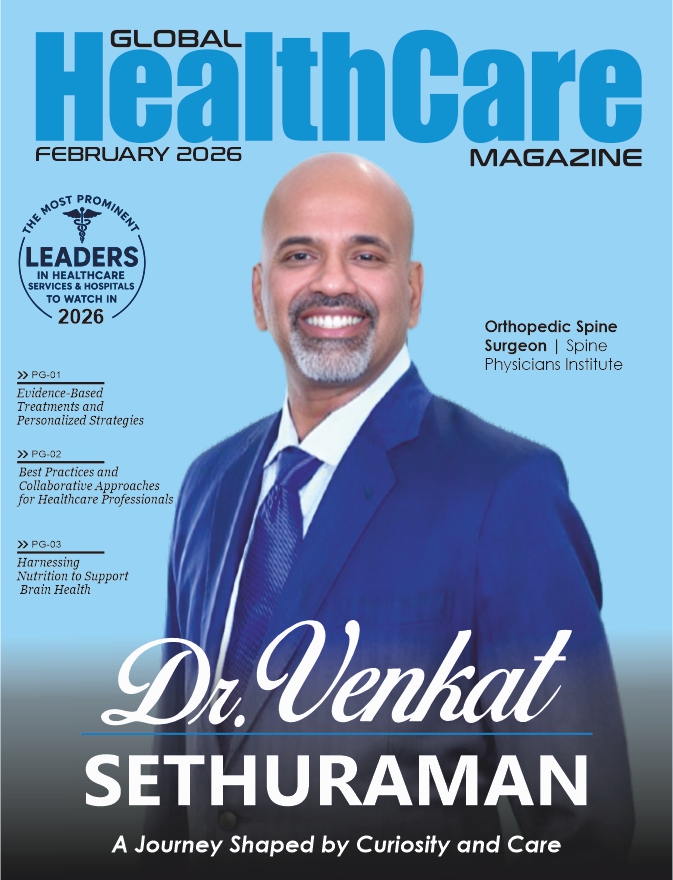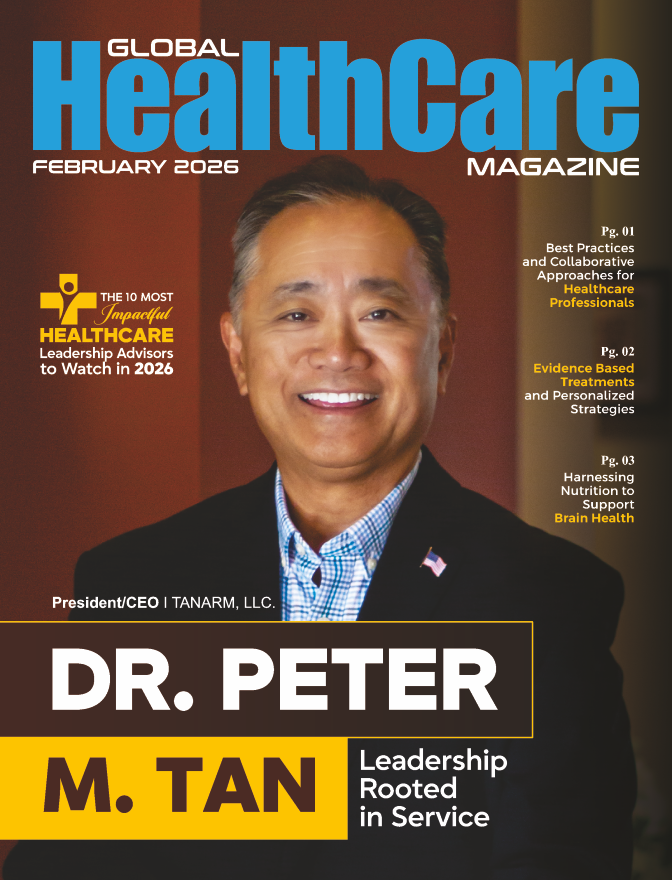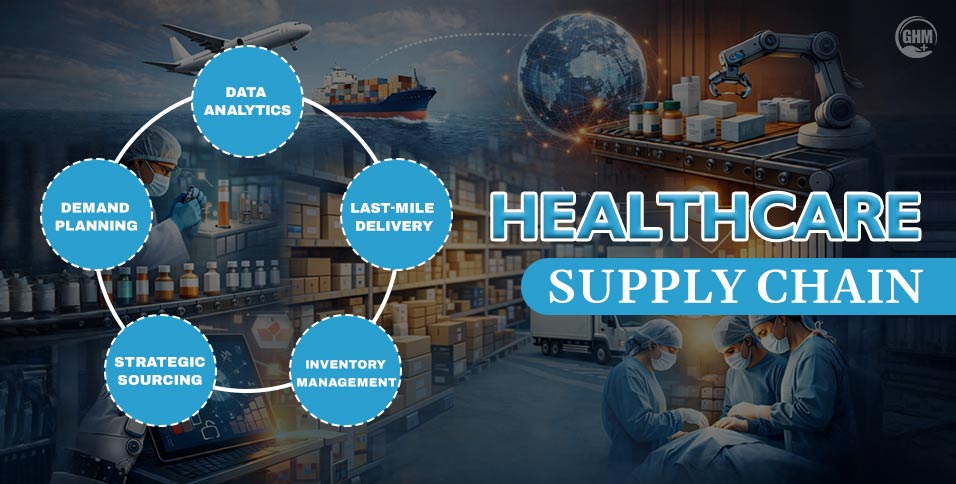OpenAI’s new pharma deals with Thermo Fisher Scientific and Lundbeck were recently announced. These collaborations mark a turning point in how artificial intelligence (AI) integrates with drug discovery and clinical research. They also open serious conversations about ethics, data protection, and governance in healthcare innovation.
AI has long promised faster, smarter drug development. But as companies like Thermo Fisher and Lundbeck integrate OpenAI tools into scientific and operational workflows, experts warn that oversight, data transparency, and accountability must keep pace.
What are OpenAI’s new pharma deals?
In October 2025, OpenAI announced two major partnerships:
- Thermo Fisher Scientific, one of the world’s largest life science and research companies, aims to use OpenAI’s technology to accelerate drug development, improve clinical trial efficiency, and identify potential failures earlier in the research cycle.
- Lundbeck, a Denmark-based pharmaceutical company specialising in brain health and mental disorders, is adopting ChatGPT Enterprise to enhance productivity, support scientists in data analysis, and streamline communication between teams.
Both deals signal a clear shift that AI is no longer an experiment in pharma; it’s becoming infrastructure.
But beneath the optimism lies a more complex question: How do we ensure ethical, secure, and transparent use of AI in drug development?
Ethics at the Heart of AI in Healthcare
Drug discovery involves vast amounts of patient data, clinical results, and sensitive biological information.
Integrating AI into this environment raises several ethical concerns:
1. Patient Privacy and Data Ownership
AI systems thrive on data. But when those data sets include genetic profiles, trial results, or personal health records, the question becomes: Who owns that data?
A 2024 report by the World Health Organisation warned that “AI-driven health innovation must not outpace ethical and regulatory preparedness.”
Lundbeck’s announcement explicitly mentioned a commitment to responsible use of generative AI under strict data governance frameworks. It is an encouraging sign that companies are beginning to act with foresight.
2. Bias in Algorithms
AI models, including OpenAI’s, learn from existing datasets. This means that biases in historical medical data can shape future drug development.
For example, underrepresentation of women or minority populations in clinical trials could lead to algorithms that perform unevenly across demographics.
3. Transparency and Explainability
OpenAI’s new pharma deals underscore the need for explainable AI, systems whose reasoning can be understood by human experts.
When algorithms suggest which molecules to test or which clinical trial participants to prioritise, regulators and scientists must be able to audit and understand those decisions.
Thermo Fisher’s partnership documentation highlights its focus on “governance structures ensuring traceability and reproducibility,” which reflects growing industry awareness.
The Data Governance Challenge
AI’s power in pharma lies in data, but so do its greatest risks. Governance frameworks must address:
- Data provenance: Knowing where data comes from and how it’s used.
- Access control: Limiting data use to authorised personnel only.
- Auditability: Keeping transparent logs of AI recommendations and outcomes.
- Cross-border data transfer: Ensuring compliance with international privacy standards such as GDPR and HIPAA.
Thermo Fisher and Lundbeck’s decision to deploy OpenAI’s technology in enterprise settings, rather than public consumer tools, reflects a move toward secure, closed-loop AI ecosystems, where data remains within company walls.
How Regulators are Keeping a Check
Global regulators are starting to notice the gap between AI’s speed and governance’s pace.
- The U.S. FDA has begun pilot programs for evaluating AI in medical product development.
- The European Medicines Agency (EMA) released a reflection paper urging “transparency and human oversight” in AI applications.
- Meanwhile, the World Health Organisation continues to emphasise that ethical AI in health requires multidisciplinary cooperation between technologists, clinicians, and policymakers.
Still, for now, companies are largely self-regulating. OpenAI’s collaborations are being watched closely as potential case studies for how ethical AI can function in practice.
Why This Pharma Deal Matters for Global Health
These partnerships may influence how future drugs, from cancer therapies to mental health medications, are developed, tested, and approved.
By integrating OpenAI’s models into pharma research pipelines, companies can potentially:
- Identify viable compounds faster.
- Reduce costly failed trials.
- Predict side effects earlier.
- Improve communication between research teams globally.
However, experts note that the benefits depend on responsible AI governance.
Without clear rules, AI-driven efficiencies could amplify inequities in global drug access, especially for low- and middle-income countries.
AI in Brain Health and Mental Well-being
Lundbeck’s use of ChatGPT also extends to internal communication, helping researchers brainstorm ideas, summarise scientific papers, and even draft patient outreach materials.
AI tools become everyday companions for scientists’ concerns about AI’s own mental health impacts on users (like overreliance or cognitive fatigue), adding another layer of reflection to AI in mental health.
This underlines a crucial point: ethical AI governance isn’t just about protecting patient data, it’s also about protecting the humans who use AI in their work.
What Comes Next For AI in Medicine
OpenAI’s new pharma deals may become blueprints for the future of AI in medicine, but they’ll also serve as tests of accountability.
How Thermo Fisher and Lundbeck handle ethical concerns, data control, and transparency could shape industry norms for years to come.
Governance isn’t just paperwork; it’s trust infrastructure. And in healthcare, where lives, not just markets, are at stake, trust is the real innovation.
Conclusion
OpenAI’s new pharma deals with Thermo Fisher and Lundbeck mark a major step for AI in drug development.
These partnerships spotlight the urgent need for ethical and data governance frameworks. Privacy, bias, and explainability remain the biggest challenges for AI in pharma.
Responsible use of AI could make global drug discovery faster and more inclusive, but only if governance keeps pace.

